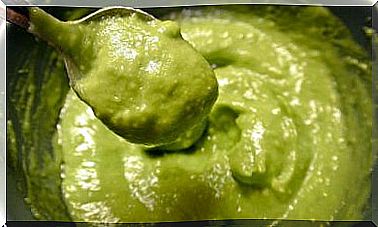Coffee Polyphenols And Diabetes

Several studies point out that there are certain polyphenols present in the diet that have antidiabetic properties, suggesting that they could act as a way to prevent and treat type 2 diabetes. Some polyphenols present in coffee, for example, influence blood glucose regulation.
This drink has been demonized for many years. However, we currently know the benefits of regular consumption, which is why it is recommended as part of the diet.
Coffee properties and polyphenols
Coffee is obtained from the roasted and ground seeds of the fruits of the coffee plant, as indicated in an article published in the Journal of Agricultural and Food Chemistry . This is one of the most consumed beverages in the world and is made up of over a thousand different chemical substances, which include:
- Amino acids and other nitrogen compounds.
- Polysaccharides and sugars.
- Triacylglycerols.
- Linoleic acid.
- Diterpenes (cafestol and kahweol), which have been attributed to unfavorable effects on blood total and LDL cholesterol levels.
- Phenolic compounds with antioxidant activity (chlorogenic, caffeic, ferulic and p-coumaric acid).
- Caffeine, which reduces fatigue, increases alertness, memory and the ability to concentrate.
- B-complex vitamins and minerals such as potassium, magnesium, phosphorus and iron.

coffee consumption
Coffee is considered a very important liquid in the diet, as it is one of the most consumed non-alcoholic beverages around the world. Finland is currently the largest coffee consumer, followed by Brazil, which consumes 5.9kg of coffee per capita.
The coffee bean-based drink is a mixture of numerous functional bioactive compounds that have a major impact on numerous health risk factors, such as:
- Arterial hypertension.
- Dyslipidemia (specifically, low-density cholesterol or LDL).
- Insulin resistance and hyperglycemia (high blood sugar levels).
- Type 2 diabetes incidence.
Coffee polyphenols and diabetes
Diabetes is a chronic disease that occurs due to an alteration in insulin secretion, or when the body does not use it effectively. It is a very common disease accompanied by several cardiovascular complications, retinopathy, nephropathy, neuropathy, ulcers and gangrene in the limbs.
The identification of dietary treatments is an area of interest and, among them, foods rich in polyphenols have been studied. Polyphenols are believed to lower the risk of diabetes and improve its treatment.

What are polyphenols?
Polyphenols are phytochemicals that have phenol rings, according to research published in Oxidative Medicine and Cellular Longetivity . Hundreds of polyphenols are present in plant foods, such as:
- Vegetables (mainly broccoli, onions, squash).
- Fruits (grape, pear, apple, berries).
- Legumes (soybeans).
- Beverages (wine, chocolate, coffee, beer).
From this, countless foods and medicines in charge of regulating energy metabolism were studied. Among them, a widely studied food is coffee, whose scientific evidence shows that its consumption favors the prevention of chronic degenerative diseases such as type 2 diabetes mellitus.
What is known about the impact of coffee polyphenols on diabetes?
It has been observed that several components within coffee have anti-diabetic properties. A study published in the Journal of Nutrition by Battram et al in 2006 looked at how glucose significantly decreases after consuming decaffeinated coffee.
On the other hand, chlorogenic acid (second largest component of coffee), quinidines and magnesium have been shown to affect glucose metabolism.

A study published in the journal Nutrients showed that the consumption of 400ml of coffee (with 2.5 mmol of chlorogenic acid per liter) increased the glucose-dependent insulinotropic polypeptide, and the type 1 glucagon-like peptide, both hormones that stimulate the secretion of insulin.
Coffee polyphenols and cardiovascular risk factors
The high content of phenolic compounds present in coffee demonstrated a powerful antioxidant capacity that protects against atherosclerosis, endothelial dysfunction and arterial hypertension.
A study published in the journal Nutrients in 2017 found that moderate coffee consumption (equivalent to 1-3 cups per day), which corresponds to a consumption of 101-337 mg/day of polyphenols, had a beneficial effect on cardiovascular risk factors .
- Decrease in systolic and diastolic blood pressure.
- Improved lipid profile (lower concentration of total cholesterol and LDL cholesterol).
- Reduction in homocysteine concentration, a cardiovascular risk marker.
Consumption of coffee polyphenols for disease prevention and treatment: the importance of future studies
To conclude, coffee is one of the most consumed beverages in the world and has been shown to have numerous properties thanks to its bioactive compounds. Mainly, the effects of caffeine and coffee polyphenols on various diseases have been studied.
Although the properties of polyphenols present in foods are well known, it has been observed that coffee polyphenols regulate mechanisms of energy metabolism, mainly mediating the concentration of glucose in the body.
However, human studies have yielded inconsistent results, so more research is needed to substantiate theories and confirm or debate the antidiabetic effects of dietary polyphenols.









